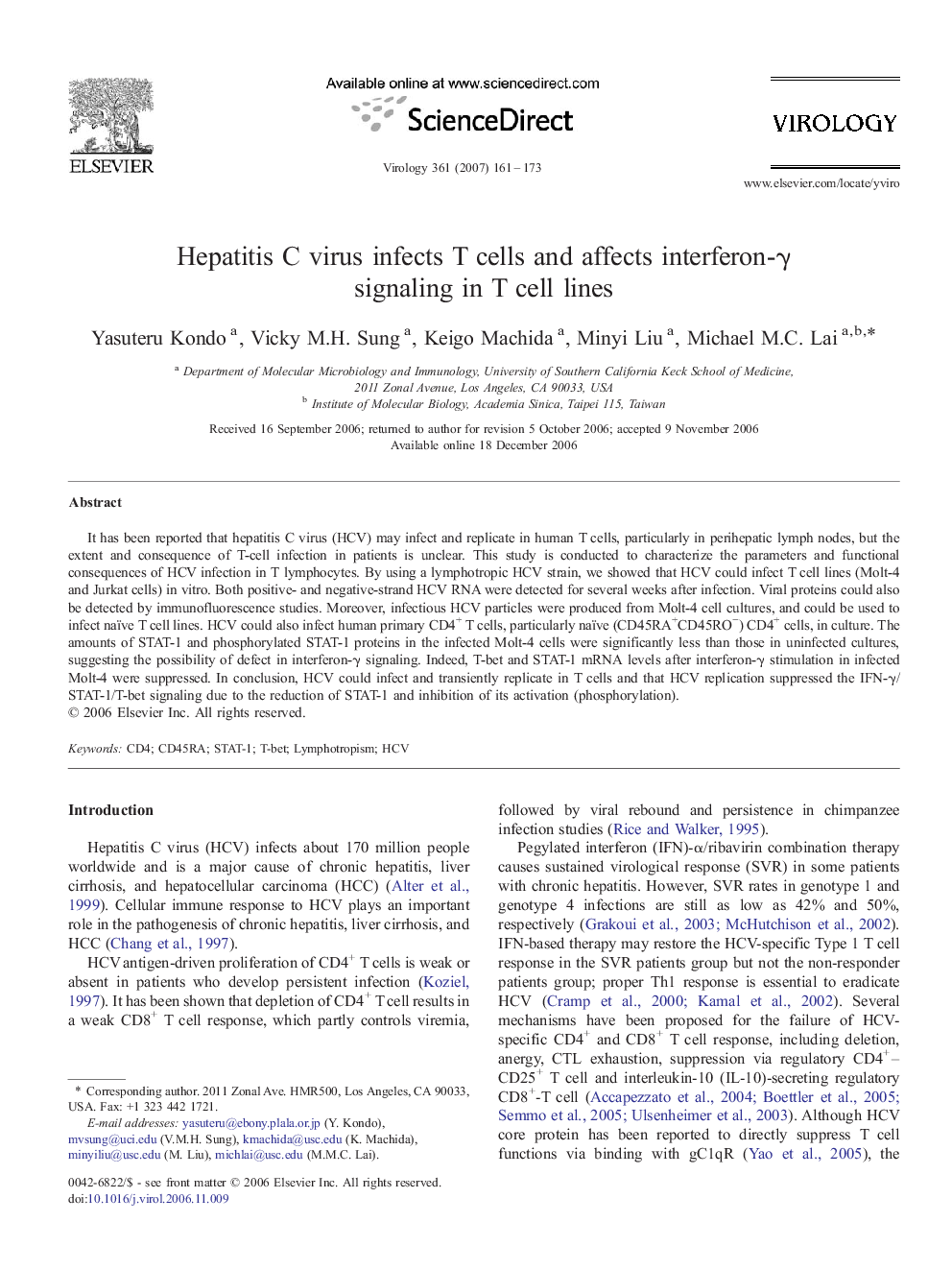| کد مقاله | کد نشریه | سال انتشار | مقاله انگلیسی | نسخه تمام متن |
|---|---|---|---|---|
| 3426915 | 1227351 | 2007 | 13 صفحه PDF | دانلود رایگان |

It has been reported that hepatitis C virus (HCV) may infect and replicate in human T cells, particularly in perihepatic lymph nodes, but the extent and consequence of T-cell infection in patients is unclear. This study is conducted to characterize the parameters and functional consequences of HCV infection in T lymphocytes. By using a lymphotropic HCV strain, we showed that HCV could infect T cell lines (Molt-4 and Jurkat cells) in vitro. Both positive- and negative-strand HCV RNA were detected for several weeks after infection. Viral proteins could also be detected by immunofluorescence studies. Moreover, infectious HCV particles were produced from Molt-4 cell cultures, and could be used to infect naïve T cell lines. HCV could also infect human primary CD4+ T cells, particularly naïve (CD45RA+CD45RO−) CD4+ cells, in culture. The amounts of STAT-1 and phosphorylated STAT-1 proteins in the infected Molt-4 cells were significantly less than those in uninfected cultures, suggesting the possibility of defect in interferon-γ signaling. Indeed, T-bet and STAT-1 mRNA levels after interferon-γ stimulation in infected Molt-4 were suppressed. In conclusion, HCV could infect and transiently replicate in T cells and that HCV replication suppressed the IFN-γ/STAT-1/T-bet signaling due to the reduction of STAT-1 and inhibition of its activation (phosphorylation).
Journal: Virology - Volume 361, Issue 1, 25 April 2007, Pages 161–173